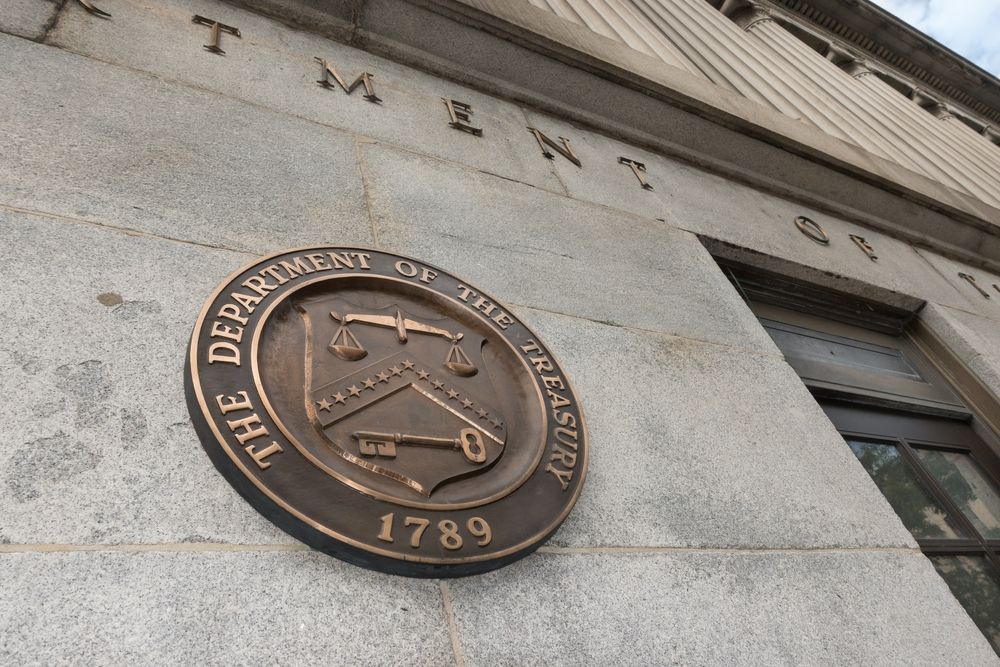A federal judge in New York has relaxed a ban that had blocked Elon Musk’s Department of Government Efficiency (DOGE)
from accessing sensitive U.S. Treasury Department information, allowing limited entry to a vast repository of financial data.
The ruling marks a pivotal moment in a contentious legal battle over privacy and government oversight, raising questions about how far DOGE’s cost-cutting mission can extend into systems handling trillions of dollars annually.
On April 14, 2025, the decision by Judge Jeannette A. Vargas came into focus, following her late-Friday ruling that permitted one DOGE employee, Ryan Wunderly, to access Treasury payment and data systems after completing mandatory training and submitting a financial disclosure.
The case, sparked by a lawsuit from 19 Democratic state attorneys general, has fueled debates over data security, political appointees, and the scope of Musk’s influence in reshaping federal operations. While DOGE supporters see the ruling as a step toward efficiency, critics warn of risks to millions of Americans’ personal information.
Origins of a Controversial Mission
The Department of Government Efficiency, launched via executive order shortly after President Donald Trump’s inauguration in January 2025, is tasked with rooting out waste, fraud, and abuse across federal agencies.
Led by Musk and former candidate Vivek Ramaswamy, DOGE has stirred both admiration and alarm. Its mission to streamline government spending—targeting agencies like the Department of Education and USAID—requires access to financial systems, including the Treasury’s, which processes tax refunds, Social Security benefits, and veterans’ payments.
The Treasury’s payment network, handling over $4 trillion annually, contains sensitive data like Social Security numbers and bank account details.
DOGE’s push to audit these systems for inefficiencies led to its initial access in late 2024, but concerns about untrained political appointees handling such data prompted swift backlash. By February 2025, Judge Vargas issued a preliminary injunction, halting DOGE’s access pending stricter safeguards.
A Lawsuit Rooted in Privacy Fears
The legal fight began when New York Attorney General Letitia James, joined by 18 other Democratic state attorneys general, sued the Trump administration.
Their February 2025 filing argued that DOGE, described as a team of “political appointees” and “special government employees,” lacked the training and authority to access Treasury records typically managed by career civil servants. The lawsuit claimed DOGE’s actions violated federal privacy laws, risking data breaches or misuse of information affecting millions.
The attorneys general pointed to an “unprecedented insider threat,” citing a Booz Allen Hamilton report that flagged DOGE’s access as a cybersecurity risk.
Protests outside the Treasury Department in Washington, D.C., on February 4, 2025, amplified public unease, with signs decrying Musk’s growing influence. The lawsuit sought to permanently bar DOGE from sensitive systems, alleging the administration had skirted constitutional protections.
Judge Relaxes Ban on DOGE Treasury Access
Judge Vargas’s latest ruling, issued on April 11, 2025, partially lifts the restrictions she imposed two months earlier.
In a detailed opinion, she permitted Ryan Wunderly, a DOGE staffer, to access payment records and data systems containing personally identifiable information, provided he completes the same cybersecurity training as Treasury employees and submits a financial disclosure report.
Vargas emphasized that Wunderly’s role is critical to DOGE’s efforts to modernize Treasury systems, but she maintained oversight to ensure compliance.
The decision reflects a balancing act: acknowledging DOGE’s stated goal of improving efficiency while addressing privacy concerns.
Vargas rejected broader access for DOGE’s team, signaling that additional staff would face similar scrutiny. The ruling undercuts an earlier, stricter order by Judge Paul A. Engelmayer in February, which had barred all DOGE personnel from Treasury data and ordered any downloaded records destroyed.
DOGE’s Defense and Public Divide
The Trump administration and DOGE leadership have framed the lawsuit as an obstacle to reform. Musk, posting on X in February, called the initial ban “absolutely insane,” arguing that auditing Treasury records is essential to uncovering fraud and saving taxpayer dollars.
“How are we supposed to stop waste without looking at how money is spent?” he wrote. The administration’s legal filings defended Wunderly’s credentials, noting his prior experience justified his role in DOGE’s Treasury review.
Public sentiment remains split. Supporters, including conservative commentators, praise DOGE as a bold antidote to bureaucratic bloat, citing Musk’s track record at Tesla and SpaceX.
On X, users hailed the ruling as a win for transparency, with one calling it “a step toward draining the swamp.” Critics, however, see DOGE as an overreach, with labor unions and advocacy groups warning of unchecked power. Democratic lawmakers have called for a Treasury investigation into DOGE’s broader activities, citing risks to federal payment systems.
Broader Implications for Privacy
The case has spotlighted the tension between government efficiency and data security. The Treasury’s systems are a linchpin of the U.S. economy, disbursing funds for everything from Medicare to disaster relief.
Any breach—whether through hacking or insider error—could expose sensitive information, a fear heightened by DOGE’s reported use of third-party AI tools to process agency data. The attorneys general warned that such tools, if applied to Treasury records, could amplify cybersecurity risks.
Vargas’s ruling sets a precedent for conditional access, requiring DOGE to align with federal standards. Yet it leaves unresolved questions about the department’s long-term role.
DOGE’s mandate extends to inspecting other agencies, from Education to the Office of Personnel Management, where similar privacy concerns have surfaced. A separate Maryland case, decided in March 2025, temporarily blocked DOGE’s access to Social Security databases, suggesting judicial skepticism may persist.
Musk’s Growing Influence
Elon Musk’s role in DOGE has fueled much of the controversy. As a “special government employee” rather than a Senate-confirmed official, Musk operates with unusual autonomy, reporting directly to Trump.
His team, including figures like Tom Krause, who now oversees $5 trillion in Treasury disbursements, has drawn scrutiny for its lack of traditional government experience. Critics argue this setup bypasses accountability, while supporters see it as a strength, unshackling reform from red tape.
The ruling has reinvigorated debates about Musk’s influence. Democratic lawmakers, including Sen. Elizabeth Warren, have accused the administration of handing “unfettered access” to unelected aides.
In contrast, Treasury Secretary Scott Bessent, exempt from the ban due to his Senate confirmation, has defended DOGE’s mission, arguing it aligns with Trump’s pledge to shrink government. The public’s view, reflected on X, ranges from distrust— “He has no right to our financial data,” one user wrote—to enthusiasm for Musk’s outsider perspective.
What Lies Ahead
The legal battle is far from over. The attorneys general may appeal Vargas’s decision, seeking to reinstate a full ban. Meanwhile, DOGE’s work continues, with Wunderly’s access marking a small but symbolic victory.
The administration must now certify compliance with training requirements, a process Vargas will monitor closely. A hearing scheduled for May 2025 could determine whether additional DOGE staff gain similar clearance.
Beyond the courtroom, DOGE’s broader agenda—slashing federal programs and workforce numbers—faces resistance. Labor unions, representing millions of federal workers, have filed separate suits, while advocacy groups rally against what they call a “renegade” operation.
Yet DOGE’s defenders argue that modernizing systems like the Treasury’s, some of which rely on decades-old technology, is overdue. The outcome could redefine how sensitive data is handled across government.
A Test of Trust
For now, Ryan Wunderly’s training represents a microcosm of the larger struggle: can DOGE deliver efficiency without compromising security? Vargas’s ruling suggests a path forward, but it’s a narrow one, contingent on transparency and rigor.
As DOGE navigates this terrain, the stakes remain high—not just for Treasury data but for public trust in a government under intense scrutiny.
The clash over DOGE encapsulates a broader question: how to balance bold reform with the safeguards that protect Americans’ privacy.
Musk’s vision, backed by Trump, promises seismic change, but the road is fraught with legal, ethical, and practical hurdles. For millions whose data lies in Treasury systems, the debate is deeply personal, a reminder of the delicate line between innovation and accountability.
Focus keywords: DOGE Treasury data access, Judge Vargas ruling 2025, Elon Musk DOGE controversy, Treasury privacy lawsuit, Department of Government Efficiency ban






